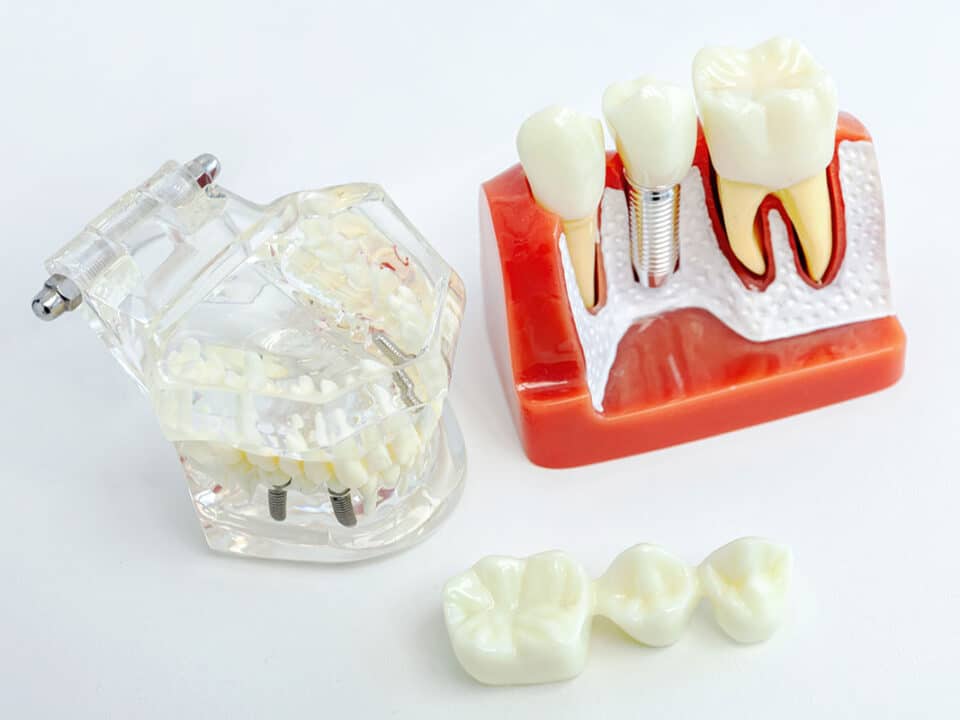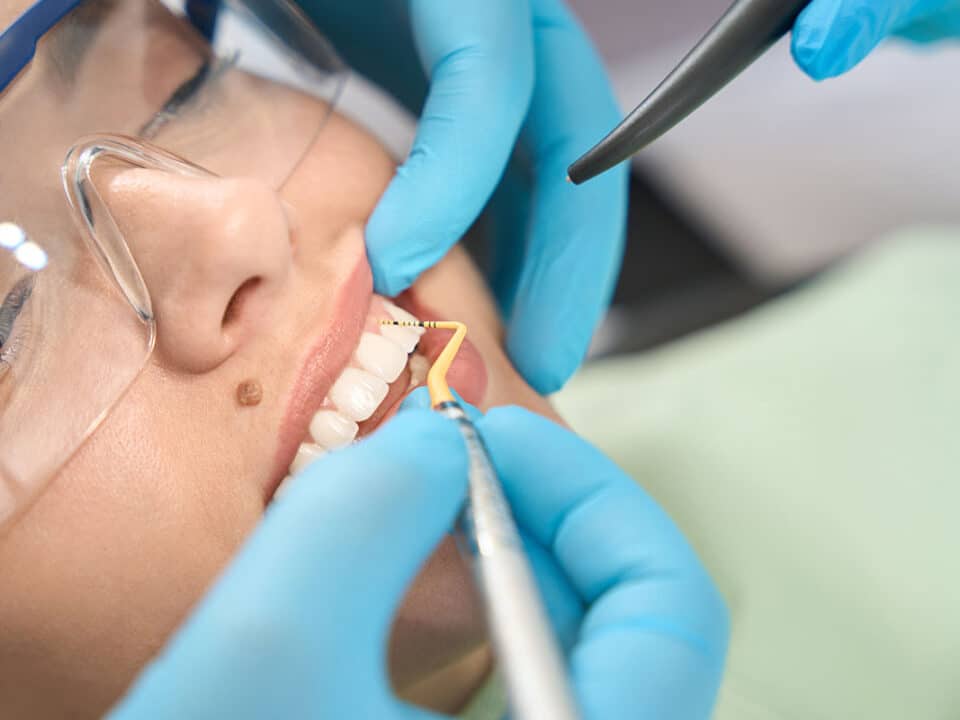The Canadian Dental Care Plan (CDCP) is a government initiative designed to make dental care more accessible and affordable for Canadians without private dental insurance who fall within specific income brackets. Given the importance of oral health and the complexities of navigating a new program, many potential patients question how the CDCP works, its benefits, and any possible downsides. Let us help answer some of the most common questions about the CDCP, including waiting times, coverage details, and potential limitations.
Table of Contents
How Long Does It Take to Get CDCP Coverage?
The time it takes to receive CDCP coverage depends on the application process and the completeness of the information provided. Once you submit your application online or by phone, the Government of Canada will review your eligibility based on your income, tax status, and lack of private dental insurance.
- Application Processing Time: Typically, it may take several weeks to process your application, verify the information, and determine eligibility. If additional information or documentation is required, this could extend the processing time.
- Receiving Coverage Confirmation: Upon approval, you will receive a welcome package from Sun Life, the plan’s administrator. This package includes a member card, co-payment details, and the coverage start date. Coverage will begin on the date specified in your confirmation, which is generally tied to your application date and enrollment completion.
To ensure the application process goes as quickly as possible, it’s a good idea to enlist the help of your dentist to ensure you are submitting correctly. This will help eliminate delays and ensure you get the most out of your CDCP coverage.
Our office is available to help – call us or email us.
How Long Does It Take to Get Dental Care with CDCP Coverage?
Once you have received confirmation of your CDCP coverage, you can start accessing dental services almost immediately, depending on the availability of dental providers.
- Appointment Availability: The time it takes to get a dental appointment will depend on the availability of participating dental providers in your area. In larger cities, appointments may be more readily available, while in smaller communities or rural areas, it may take longer to secure an appointment.
- Coordination with Providers: When booking an appointment, it is advisable to inform your chosen dental provider that you have CDCP coverage. This ensures that they are prepared to process claims through the CDCP and coordinate any necessary paperwork.
Is There a Waiting Period When Using the CDCP?
Unlike many private dental insurance plans that often have waiting periods before certain types of coverage kick in, the CDCP does not have a formal waiting period for most covered services.
- Immediate Coverage: Once your application is approved and your coverage begins, you can immediately access preventive and basic restorative services. However, more complex treatments may require preauthorization.
- Preauthorization for Certain Services: Preauthorization from the plan administrator (Sun Life) is necessary for services like orthodontics, crowns, or certain types of oral surgery. This is not a waiting period per se, but the approval process could take additional time before the treatment is authorized.

Are There Any Downsides to Using the CDCP?
While the CDCP offers significant benefits by providing access to essential dental care for those without private insurance, there are some limitations and considerations to be aware of:
- Coverage Limitations: The CDCP covers a wide range of preventive and basic restorative services, but coverage for major dental work or specialized treatments may be limited or require preauthorization. For example, complex procedures like dental implants or extensive orthodontic work may not be fully covered or have specific conditions attached.
- Co-Payment Requirements: Depending on your income bracket, you may be required to make a co-payment for certain services. Families earning between $70,000 and $79,999 must cover 40% of eligible costs, while those earning between $80,000 and $89,999 must cover 60%.
- Provider Availability: Not all dental providers may be registered with the CDCP. Patients might have to check with their preferred dentists to see if they accept CDCP coverage or may need to find a new provider who does.
What Services Are Covered Under the CDCP?
The CDCP provides coverage for a broad range of dental services, but the extent of coverage may vary based on the type of treatment and income bracket.
- Preventive Services: Routine exams, cleanings, fluoride treatments, and sealants are covered to prevent tooth decay and maintain oral health.
- Basic Restorative Services: Coverage includes fillings, extractions, and root canals. These are essential treatments that help preserve oral health and prevent further complications.
- Specialized Treatments: Crowns, bridges, orthodontics, and certain oral surgeries may be covered but often require preauthorization and may have specific conditions.
- Emergency Dental Services: Treatment for dental emergencies, such as severe tooth pain or infection, is covered to ensure prompt care.
Can I Use the CDCP if I Have Existing Dental Coverage?
No, the CDCP is primarily for individuals and families without private or workplace dental insurance. However, you may still be eligible if you have dental coverage through a government social program (provincial, territorial, or federal). In such cases, the coverage between the plans will be coordinated. Please get in touch with our office to find out more about your CDCP eligibility.

How Can I Maximize My Benefits Under the CDCP?
To get the most out of your CDCP coverage:
- Prioritize Preventive Care: Regular check-ups and cleanings are covered and help prevent more costly dental issues.
- Understand Co-Payment Requirements: If your income falls within the partial or limited coverage brackets, be aware of your co-payment percentage.
- Consult with Your Dentist: Work closely with your dental provider to understand which services are covered and whether preauthorization is needed for certain procedures.
Please read our dedicated article about getting the most out of your CDCP coverage.
How Do I Apply for CDCP Coverage?
To apply for CDCP coverage, you can apply online through the Government of Canada’s website or call the dedicated phone number. You’ll need to provide personal information, such as your Social Insurance Number (SIN), date of birth, full name, addresses, and information on any existing dental coverage. You and your spouse or common-law partner must have filed your 2023 tax returns and received your Notice of Assessment.
Please read our dedicated page on applying for the CDCP, or contact our office for assistance.
Additional CDCP FAQ
The commute is simple and straightforward, with regular GO train services to Union Station and a very accessible highway network.
CDCP coverage is primarily intended for use within your province or territory of residence. If you need dental care while traveling or living temporarily in another province, check with the CDCP and the dental provider to ensure that the service will be covered and determine any steps needed for reimbursement.
Hamilton experiences four distinct seasons, with warm, humid summers and cold, snowy winters.
Yes, if a CDCP claim is denied, you have the right to appeal the decision. The appeal process involves providing additional documentation or clarification to support your claim. It is advisable to consult your dentist and contact the CDCP administrator for guidance on the appeal process.
Preventive services like routine exams and cleanings are typically covered once every 6 to 12 months, depending on the plan details and individual needs. Consult the CDCP benefit guide for specific frequency limits and talk to your dentist to schedule these services appropriately.
Yes, the CDCP may have an annual maximum limit for certain types of dental services. The exact limit can vary, and it is important to consult the CDCP benefit guide or speak with a representative to understand your specific coverage limits.
If you obtain private dental insurance after enrolling in the CDCP, you may no longer be eligible for the CDCP. It is important to notify the CDCP administrator immediately to update your status and avoid any potential issues.
Yes, the CDCP covers a range of dental services for children under 18, including preventive care (such as cleanings and fluoride treatments), fillings, and other necessary dental treatments. Parents or guardians need to apply on behalf of their children to access these benefits.
Specialized dental services, such as periodontal treatments for gum disease, may be covered under the CDCP, but they often require preauthorization. Check with your dentist and the CDCP administrator to confirm eligibility and coverage details for specialized services.
Orthodontic treatments, such as braces, may have limited coverage under the CDCP and generally require preauthorization. The coverage is more likely to apply when the treatment is deemed medically necessary rather than for cosmetic reasons. Always verify the coverage with the CDCP.
If you lose your CDCP member card, you should contact the CDCP administrator (Sun Life) to request a replacement. You will need to provide personal information for verification and may have to complete a form or follow specific steps to get a new card issued.
Yes, you can switch dentists while covered by the CDCP, as long as the new dentist participates in the program. Ensure your new dental provider is aware of your CDCP coverage and can coordinate claims accordingly.
No, cosmetic dental procedures, such as teeth whitening or veneers for aesthetic purposes, are generally not covered under the CDCP. The plan focuses on essential, preventive, and medically necessary treatments.
Yes, CDCP coverage can be extended to eligible family members, including spouses, common-law partners, and children under 18. However, a separate application may be required for each family member, and eligibility criteria must be met for each.
Additional Resources
Martindale Dental CDCP Information Page
8 Tips To Maximize Your CDCP Coverage
What services are covered under CDCP?
How much does CDCP dental care cost?
Does CDCP work with other forms of dental coverage?
What to Do If Your CDCP Coverage Doesn’t Include Your Treatment
Handling a Dental Emergency Using CDCP Coverage
How The CDCP Reduces Dental Health Disparities
Handling a Dental Emergency Using CDCP Coverage
Do Dental Clinics Benefit From Offering CDCP Coverage?
Best Practices for Dentists When Communicating the CDCP to Patients
Check us out on Facebook and Twitter for daily information about Oral Health from Martindale Dental, or visit our offices in Hamilton and St. Catharines.
Have more questions?
Please contact us for all inquiries or to book an appointment with one of our convenient clinic locations. We look forward to hearing from you.




